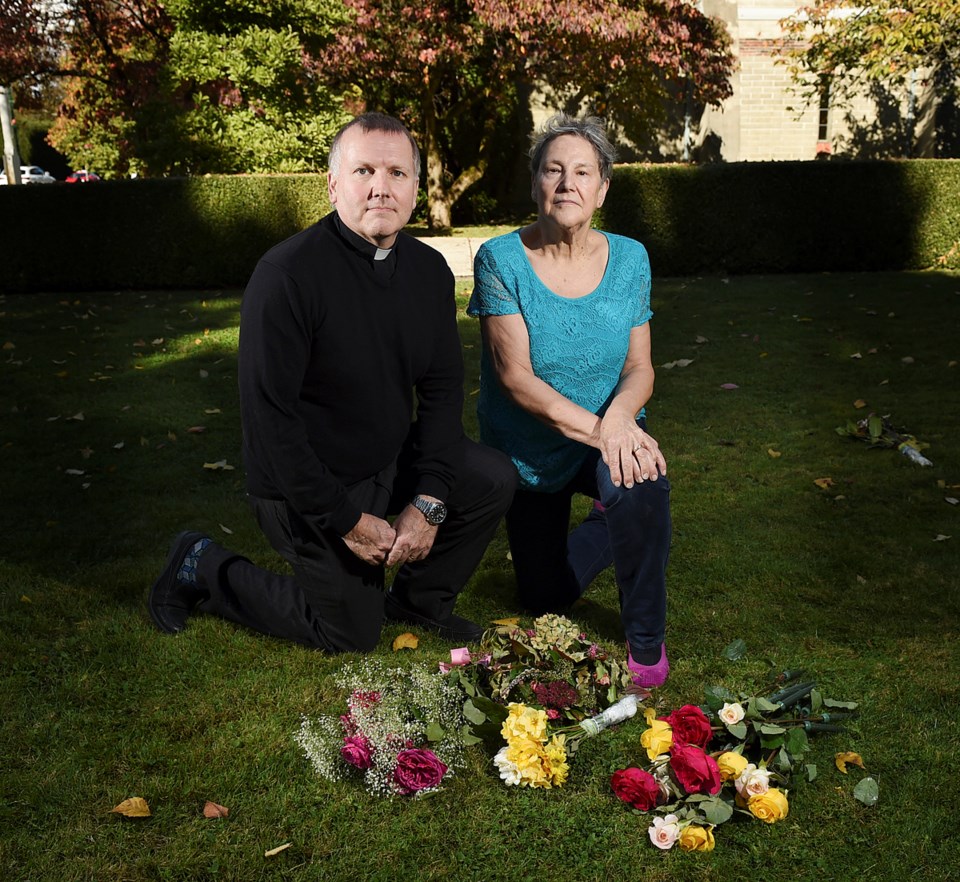Six years ago, a B.C. court ruled that dissident Anglicans who broke from the church over marriage equality could not keep their church buildings. One of those affected was St. John’s Shaughnessy Anglican Church which, at the time, was said to be Canada’s largest Anglican congregation. While the court decision affected a number of churches, certainly none had the symbolic significance of St. John’s Shaughnessy, with its gorgeous building at Granville Street and Nanton Avenue being a city landmark. It also sits on a serious piece of prime West Side real estate.
As a result of the court ruling, most of the existing congregation left en masse and the diocese appointed a new priest to start a fresh congregation in the historic church.
While the parishioners of the time were free to leave and find meeting space in a neighbouring Baptist church, it was more than a building they were leaving behind. The ashes of about 500 congregants have been interred over six decades in a memorial garden south of the church building.
Now, members of the new congregation are seeking out the families whose loved ones and ancestors are in the garden and hope they will join (at least) in an annual remembrance service.
Maggie Sanders, a self-described “church lady” with a distinguishing New Zealand accent and a randy sense of humour, is the volunteer trying to track down family members. The weird thing is, the church archives have records of next of kin, but privacy laws prevent Sanders from using that information. So she has been looking up obituaries online and cold-calling possible relations of those in the garden.
The history of the garden is a bit sketchy. Sanders has a letter from December 1967, in which reference is made to an anonymous donor contributing the property next to the church — it appears to have been a residential lot — about eight years prior. That puts the beginning of the memorial garden somewhere around 1958 or ’59, Sanders says.
Notably, the places where ashes are interred are not marked and they are not in urns. That would make it a cemetery and the location is not zoned for that. Instead, ashes are buried randomly. On a recent day, a half-dozen bouquets were strewn around the grassy garden, presumably around where family members recall their loved ones’ ashes being placed.
When a new priest, the Venerable John Stephens, arrived earlier this year, he asked that an effort be made to contact families whose members are interred in the garden. Sanders, a retired legal secretary, says her professional background made her a fit for the job. Her uncontainable enthusiasm and high energy level don’t seem to hurt either.
Tracking down family is easy when there are sons involved, or when a daughter’s married name is included in an obit. But Smiths, Browns and Joneses can lead Sanders on a goose chase of dead-end calls.
“So, what I’m hoping is that people will go, ‘My grandfather is there,’ and we would like those people to feel free to come back,” she says.
She hopes families will come, if nothing else, for the second annual remembrance ceremony, which is already slated for September 24, 2017.
At this year’s ceremony, last month, people stayed afterward over wine and cheese for hours swapping stories. The walls of this church, too, would certainly have stories. A who’s who of Vancouver Anglicanism — well, Vancouver period — have been members of the congregation over the years.
If the wounds of the recent past haven’t healed yet, and former congregants aren’t ready to reunite in their former place of worship, Sanders understands.
“We respect that,” she says. “But they may want to come back and honour their loved ones here. That’s what this is all about.”
The priest, who most people call Father John despite the venerable title that accompanies his role as a church archdeacon, says a memorial garden is not uncommon in Anglican churches, though back east and in other countries, the church yard is more likely to house a traditional cemetery. (As I have written about previously, British Columbians choose cremation over burial by a huge margin, much higher than in other parts of Canada.)
“We decided this year to have a special service where we try to remember everyone whose ashes have been put in the garden,” he says. “Just as a way of honouring them and recognizing how important it is to bring to mind those that we have loved and see no longer and be able to offer prayers and thanksgivings for them.”
Sanders and Stephens acknowledge that having the word Shaughnessy in the church name could be intimidating for some, but they insist they welcome one and all.
And despite the church split over same-sex marriage, the priest offers reassurance that the memorial garden is a sacred responsibility.
“It’s something that we’ve taken very seriously to maintain and look after and it was important again to have a special service to mark that,” he says. “That goes well beyond the lawsuits and internal disagreements within the church. It’s important that we care for our loved ones and obviously for those who have gone before us.”
Does he think a focus on the memorial garden could being some former congregants back into the pews?
“I don’t know,” Stephens says. “That’s hard to say. I guess what I do hope is that we can see just how important it is that there are certain things that aren’t part of the disagreement and that we should be able to come together around those things and just be able to be together for that and not worry about — however you want to describe it — the politics of the church or disagreements around understandings around interpretation of scripture and things. But just simply to focus on loved ones who have gone before, family backgrounds and how we care for one another both in this world and the next.”
PacificSpiritPJ@gmail.com
@Pat604Johnson



